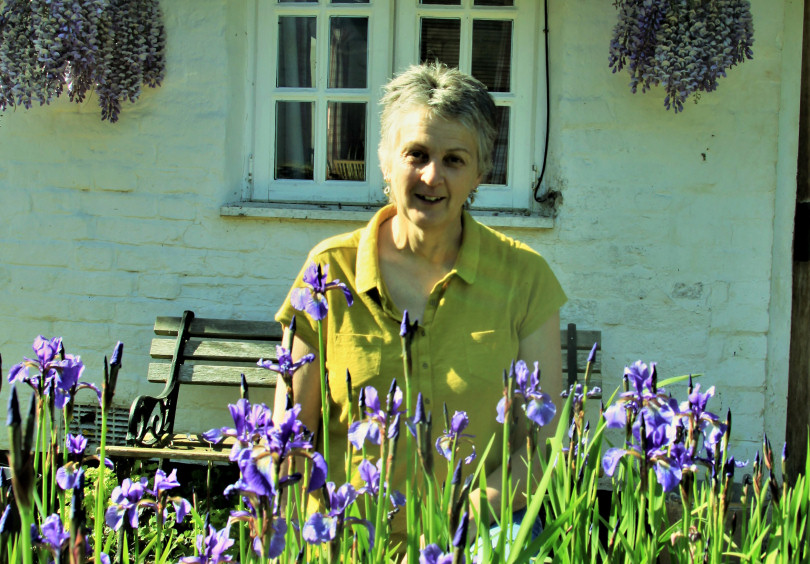While a recent study revealed that retailers are selling supposedly ‘bee-friendly’ plants that contain high levels of dangerous insecticides, one Shropshire woman has set out to prove that chemicals are unnecessary to the successful growth of bee and butterfly-attracting florae.

Local landscape architect, Julia Tinker, who recently retired from the Canal and River Trust, has come to the aid of the declining bee and butterfly population by growing and selling plants that will attract them, especially pollinators such as bees. She also provides specialist information about gardening to specifically attract bees and butterflies, on her website www.alluringplants.co.uk.
“I want to encourage people to grow nectar and pollen rich plants that will help our bees and butterflies to survive and multiply in an ever increasing hostile world,” says Julia. “It really doesn’t matter how large or small a garden is, it is possible for everyone to grow the kind of flowers that are so important to the survival of these creatures.
“More importantly, as we have proved at our nursery just outside Bridgnorth, it is possible to grow pollinator-attracting plants without the use of pesticides. As our ethos is about making the environment more friendly, we also grow the plants which we sell at craft fairs and market stalls in bio-degradable pots and peat-free compost.
“Over the past fifty years Britain has seen a steady decline in bees, butterflies and other insects and they need our help if they are to increase their numbers. Bees visit a wide variety of plant species, collecting both nectar and pollen for themselves and their colonies, whilst adult butterflies will visit for the energy-giving nectar.
“We currently sell more than 30 different types of flowering plants that are particularly attractive to bees and butterflies. By growing as many different nectar plants as possible you can increase the number of bee and butterfly species in your garden. One thing to remember though is that you must have enough flowers to produce nectar in sufficient quantities to make it worthwhile them visiting.”
The recent study that revealed the use of pesticides by garden centres and other suppliers was carried out by academics from Sussex and Padova universities in May 2017 and will appear in a paper to be published in the journal Environmental Pollution.





 Shropshire Live is regulated by
Shropshire Live is regulated by 